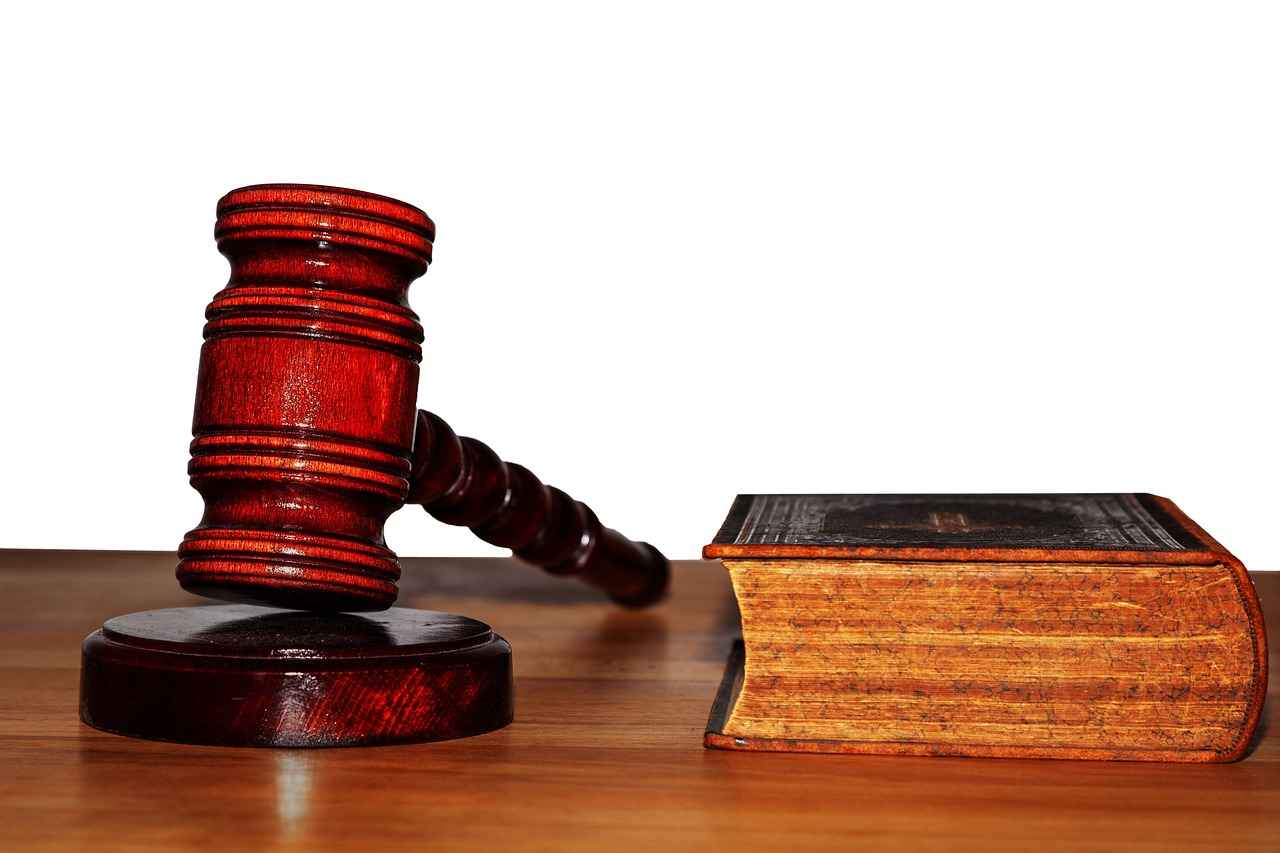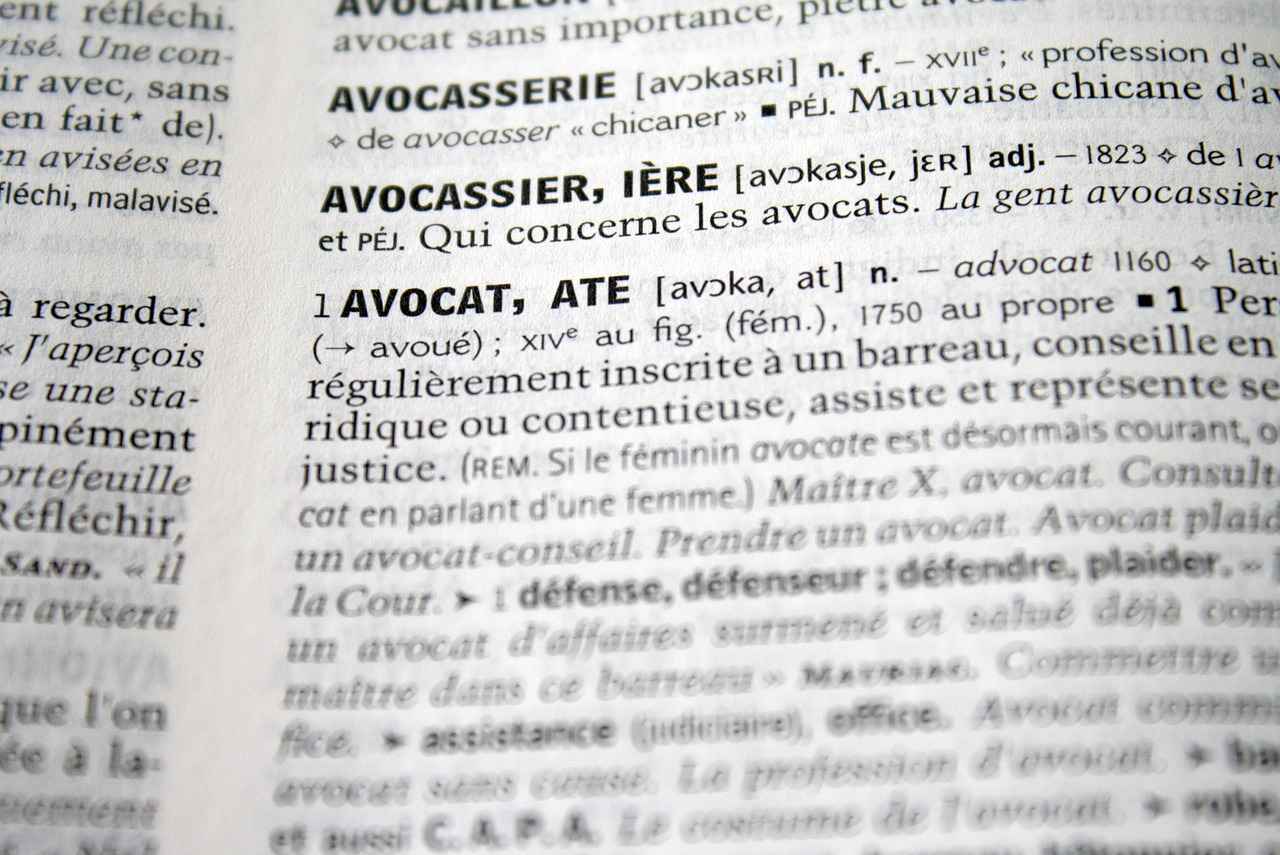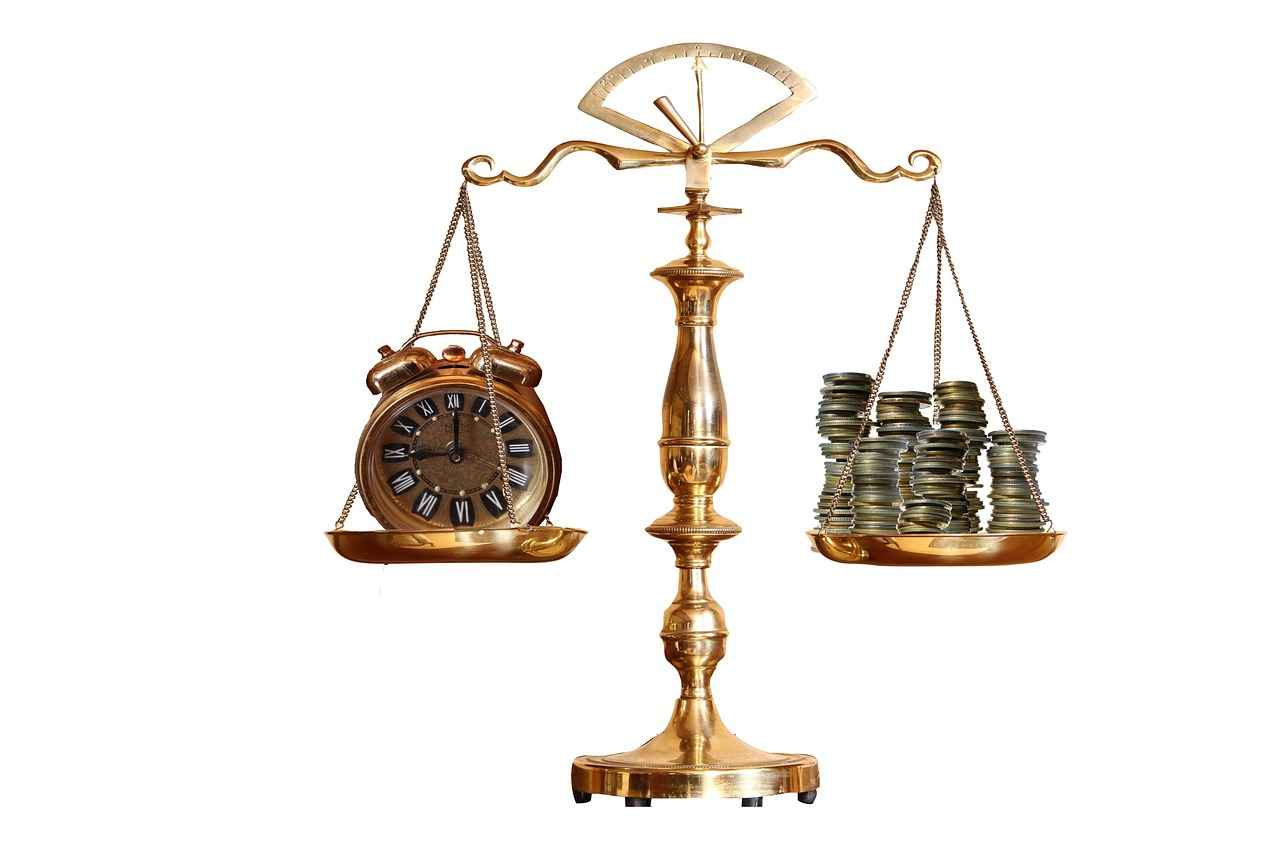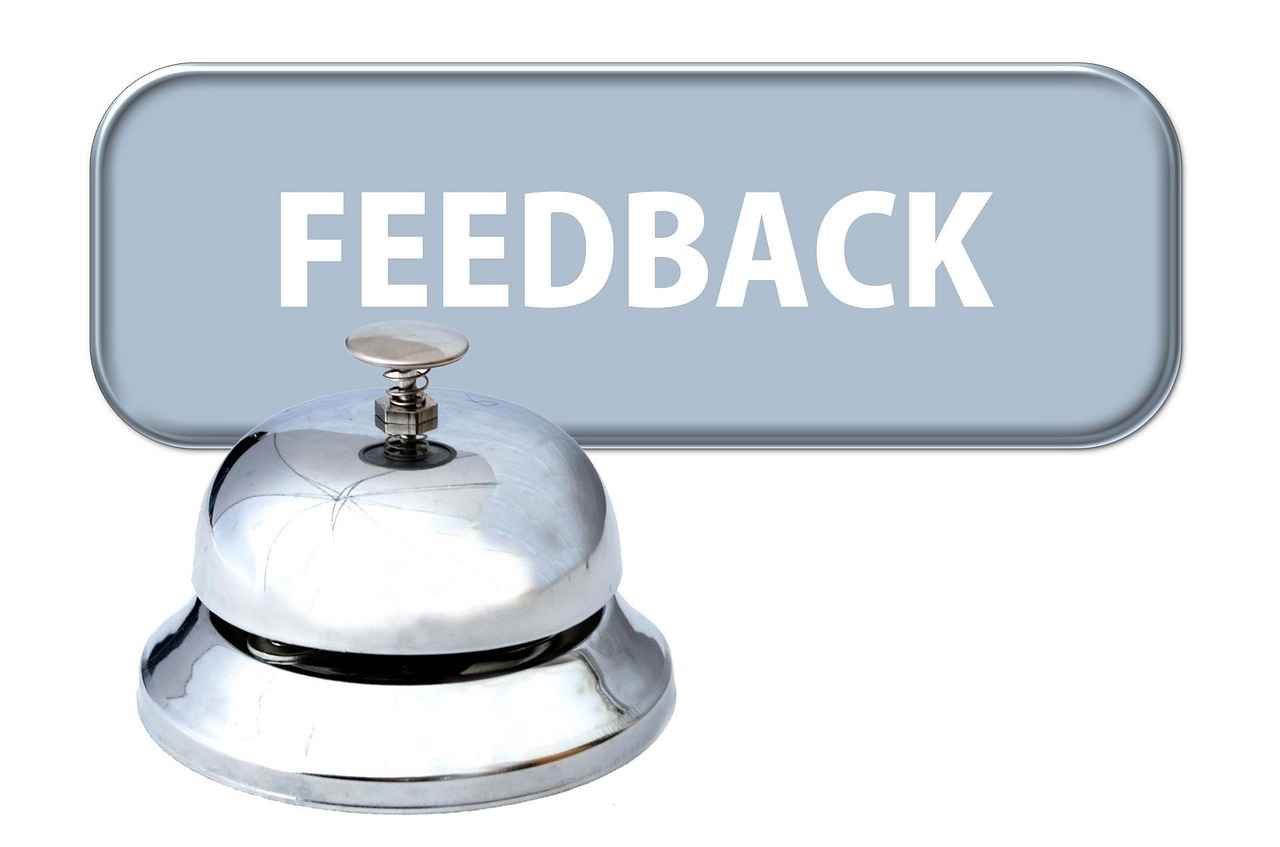In this article, we will explore the most common types of legal cases in the United States and provide guidance on how to find qualified and trustworthy attorneys in Tacoma, Washington. The legal landscape can be complex, but understanding the different types of cases and knowing how to choose the right attorney can make a significant difference in the outcome of your legal matters.
Understanding Personal Injury Cases
Personal injury cases arise when individuals suffer harm due to someone else’s negligence. This can include car accidents, slip and falls, or workplace injuries. To find a skilled personal injury lawyer, look for someone with a strong track record in similar cases. Check their reviews online, ask for referrals, and ensure they offer a free initial consultation.
Medical Malpractice: What You Need to Know
Medical malpractice occurs when healthcare professionals fail to provide the standard of care, resulting in patient harm. Finding an attorney with specific expertise in medical malpractice is crucial for successful litigation. Look for lawyers who have experience with medical experts and a history of winning malpractice cases.
Breach of Contract: Legal Implications and Solutions
Breach of contract cases involve disputes over the terms of a legally binding agreement. Understanding how to identify a qualified contract attorney can help you navigate these complex legal waters. Seek attorneys who specialize in contract law and have a proven history of resolving disputes favorably.
Navigating Property Disputes
Property disputes can arise from various issues, including boundary disagreements and title claims. Knowing how to find a real estate attorney with experience in property disputes is essential for resolution. Look for attorneys who are familiar with local property laws and have a successful track record in property disputes.
Landlord-Tenant Disputes: Key Considerations
Disputes between landlords and tenants can involve eviction, maintenance issues, and lease agreements. Finding a knowledgeable attorney who specializes in landlord-tenant law can help protect your rights. Check for attorneys who are familiar with local housing regulations and have experience in mediation and litigation.
Defamation Cases: Understanding Libel and Slander
Defamation involves damaging someone’s reputation through false statements. Identifying a lawyer who specializes in defamation cases is critical for pursuing legal action effectively. Look for attorneys who have successfully handled similar cases and understand the nuances of libel and slander laws.
Employment Disputes: Finding the Right Advocate
Employment disputes can arise from wrongful termination, discrimination, and harassment. A qualified employment lawyer can help navigate these complex issues and advocate for your rights. Seek out attorneys who specialize in employment law and have a strong understanding of both state and federal employment regulations.
Product Liability: Holding Manufacturers Accountable
Product liability cases arise when defective products cause harm. Understanding how to find a lawyer with experience in product liability can help you seek justice and compensation. Look for attorneys who have handled similar cases and have a network of experts to support your claim.
Wrongful Death Claims: Seeking Justice for Loved Ones
Wrongful death claims are filed when negligence leads to someone’s death. Knowing how to find a compassionate and experienced wrongful death attorney is vital for navigating this emotional process. Seek lawyers who have a track record of handling wrongful death claims and who can provide empathetic support during this difficult time.
Class Action Lawsuits: Collective Legal Action
Class action lawsuits allow groups of individuals to sue for damages collectively. Finding an attorney with experience in class actions can help ensure your rights are represented. Look for lawyers who have successfully managed class action suits and understand the complexities involved.
Criminal Offenses: Navigating the Legal System
Criminal offenses, such as theft, assault, and DUI, require specialized legal representation. Knowing how to find a skilled criminal defense attorney is essential for protecting your rights and future. Seek attorneys with a strong background in criminal law and positive outcomes in similar cases.
Family Law: Divorce and Custody Matters
Family law encompasses various issues, including divorce, child custody, and adoption. Finding an attorney who specializes in family law can help you navigate these sensitive matters effectively. Look for lawyers who have a compassionate approach and a successful history in family law cases.
Bankruptcy: Understanding Your Options
Bankruptcy cases can provide relief for individuals facing financial hardship. Knowing how to find a qualified bankruptcy attorney can help you understand your options and navigate the process smoothly. Seek attorneys who have experience with bankruptcy filings and can help you explore all possible solutions.

Understanding Personal Injury Cases
In the realm of legal matters, personal injury cases represent a significant area of concern for many individuals. These cases arise when an individual suffers harm due to the negligence or wrongful actions of another party. Understanding the intricacies of personal injury law is essential for those seeking justice and compensation for their injuries. This section will delve into the various aspects of personal injury cases, including how to effectively find a qualified personal injury lawyer, which can greatly influence the outcome of your case.
When faced with a personal injury situation, the first step is to recognize the types of incidents that can lead to such cases. Common examples include:
- Automobile accidents
- Slip and fall incidents
- Workplace injuries
- Medical malpractice
- Defective products
Each of these scenarios can involve complex legal principles and require specific expertise. Therefore, finding a skilled personal injury lawyer is crucial. Here are some proven methods to locate the right attorney:
1. **Research Online**: Utilize legal directories such as Avvo, FindLaw, or Justia to identify potential lawyers in your area. Look for those with high ratings and positive reviews.2. **Check Credentials**: Ensure that the lawyer is licensed to practice in your state and has experience in personal injury law. Membership in professional organizations like the American Association for Justice can also be a good sign.3. **Seek Recommendations**: Ask friends, family, or colleagues for referrals. Personal experiences can provide valuable insights into a lawyer's capabilities.4. **Initial Consultations**: Many personal injury lawyers offer free consultations. Use this opportunity to assess their knowledge, communication style, and approach to your case.5. **Evaluate Experience**: Inquire about their track record with similar cases. A lawyer with a history of successful settlements or verdicts in personal injury cases is preferable.
While searching for a personal injury lawyer, it’s essential to be aware of potential red flags. Avoid lawyers who:
- Promise guaranteed outcomes
- Pressure you into signing contracts quickly
- Have numerous complaints or disciplinary actions against them
- Do not have a clear fee structure
In conclusion, understanding personal injury cases and knowing how to find a qualified lawyer can significantly impact your journey toward justice. By conducting thorough research, seeking recommendations, and being vigilant about red flags, you can enhance your chances of securing a competent attorney who will advocate effectively on your behalf.

Medical Malpractice: What You Need to Know
Medical malpractice is a serious issue that arises when healthcare professionals, including doctors, nurses, and other medical staff, fail to adhere to the accepted standards of care, resulting in harm to patients. This can manifest in various forms, such as misdiagnosis, surgical errors, medication mistakes, or failure to inform patients about the risks associated with a treatment. Understanding the complexities of medical malpractice is crucial for anyone considering legal action.
When dealing with a potential medical malpractice case, the first step is to gather all relevant medical records. This includes treatment history, prescriptions, and any communications with healthcare providers. These documents will be essential in establishing the standard of care that was expected and how it was breached. It is also important to document any injuries or complications that occurred as a result of the alleged malpractice.
Finding a qualified attorney who specializes in medical malpractice is paramount. Here are some key considerations when searching for the right legal representation:
- Experience: Look for attorneys with a proven track record in handling medical malpractice cases. They should be well-versed in both state and federal laws pertaining to healthcare.
- Reputation: Research online reviews and testimonials from former clients. A lawyer’s reputation can often be gauged through their standing in the legal community and feedback from peers.
- Credentials: Verify their educational background, bar association memberships, and any certifications in medical malpractice law. Membership in professional organizations can also indicate a commitment to staying updated on legal developments.
- Consultation: Many attorneys offer free initial consultations. Use this opportunity to ask questions about their experience, approach to cases, and success rates.
- Communication: Ensure that the attorney communicates clearly and is responsive to your questions. A good lawyer should be able to explain complex legal terms in a way that is easy to understand.
In addition to these factors, be wary of red flags. For instance, if an attorney guarantees a specific outcome or offers to take your case without thoroughly reviewing the details, this could indicate a lack of professionalism or understanding of the legal complexities involved.
Medical malpractice cases can be challenging to prove, often requiring expert testimony to establish that the standard of care was not met. Therefore, it is crucial to work with an attorney who has access to medical experts and a network of professionals who can support your case. This support can make a significant difference in the outcome of your claim.
Moreover, be aware of the statute of limitations for filing medical malpractice claims in your state, as these deadlines can vary significantly. Failing to file within the required timeframe can result in losing your right to seek compensation for your injuries.
Overall, navigating a medical malpractice case requires not only a thorough understanding of the legal landscape but also the ability to find the right legal partner. By taking the time to research and vet potential attorneys, you can ensure that you have the best chance of achieving a favorable outcome.

Breach of Contract: Legal Implications and Solutions
Breach of contract cases arise when one party fails to fulfill their obligations as outlined in a legally binding agreement. These disputes can lead to significant financial losses and strained relationships, making it essential to understand the legal implications involved. Whether you are a business owner, a service provider, or an individual entering into a contract, knowing how to identify a qualified contract attorney can be crucial in navigating these complex legal waters.
When seeking a contract attorney, consider the following key factors:
- Experience: Look for attorneys who specialize in contract law and have a proven track record of handling breach of contract cases. Their experience can provide valuable insights into the nuances of your specific situation.
- Credentials: Verify the attorney’s qualifications, including their education, bar admission, and any additional certifications in contract law. Membership in professional organizations, such as the American Bar Association, can also be a positive indicator.
- Reputation: Research online reviews and testimonials from previous clients to gauge the attorney’s reputation. Recommendations from trusted sources can also help you find a reliable legal professional.
- Communication: An effective attorney should communicate clearly and promptly. During initial consultations, assess how well they listen to your concerns and explain legal concepts.
- Fees: Understand the attorney’s fee structure before hiring them. Some attorneys charge hourly rates, while others may work on a contingency basis. Be sure to discuss and clarify any potential additional costs involved.
In major metropolitan areas such as New York City, Los Angeles, and Chicago, finding a qualified contract attorney can be competitive. Utilize legal directories such as Avvo or FindLaw to search for attorneys in your area. These platforms provide valuable information, including practice areas, client ratings, and contact details.
Additionally, consider scheduling consultations with multiple attorneys to compare their approaches and fees. This will also give you a sense of their interpersonal skills and whether they are a good fit for your needs.
It is important to recognize red flags when selecting a contract attorney. Be cautious of attorneys who make unrealistic promises or guarantees regarding the outcome of your case. Additionally, avoid those who seem more focused on their fees than on your legal needs. A trustworthy attorney should prioritize your best interests and provide a realistic assessment of your case.
In conclusion, navigating a breach of contract dispute can be a daunting task, but with the right legal representation, you can protect your rights and seek appropriate remedies. By following the guidelines outlined above, you can find a qualified contract attorney who will advocate for your interests and help you achieve a favorable outcome.

Navigating Property Disputes
Property disputes can be a significant source of stress and conflict, often arising from a variety of issues such as boundary disagreements, title claims, and easement rights. When faced with such disputes, it is crucial to understand the complexities involved and the importance of finding a qualified real estate attorney who specializes in property law.
In many cases, property disputes stem from unclear property lines. Neighbors may have differing interpretations of where their land ends and another’s begins, leading to conflicts over fences, trees, and landscaping. Additionally, disputes can arise from title claims, where parties contest the rightful ownership of a property based on historical claims or legal documentation. Understanding local property laws is vital in these situations.
To find the right attorney for your property dispute, consider the following steps:
- Research Local Attorneys: Start by searching for real estate attorneys in your area. Websites like Avvo and FindLaw offer directories of lawyers along with ratings and reviews from previous clients.
- Check Credentials: Look for attorneys who have specific experience in property disputes. Verify their credentials, including their education and any certifications related to real estate law.
- Seek Recommendations: Ask friends, family, or colleagues for recommendations. Personal experiences can provide valuable insights into an attorney’s capabilities.
- Schedule Consultations: Most attorneys offer initial consultations. Use this opportunity to discuss your case and gauge their understanding of property law and their approach to resolving disputes.
- Evaluate Communication: Ensure that the attorney communicates clearly and effectively. A good attorney should be able to explain complex legal concepts in a way that you can understand.
- Discuss Fees: Be upfront about discussing fees and payment structures. Understanding the costs involved can help you avoid any surprises later on.
It is also essential to be aware of red flags when hiring a real estate attorney:
- Attorneys who lack experience in property disputes or real estate law.
- Those who do not provide clear communication or fail to answer your questions satisfactorily.
- Any attorney who pressures you into making quick decisions without fully understanding your case.
In conclusion, navigating property disputes can be challenging, but with the right legal representation, you can work towards a resolution that protects your interests. By following these steps and being mindful of potential red flags, you can find a qualified real estate attorney who will advocate for you effectively.

Landlord-Tenant Disputes: Key Considerations
Disputes between landlords and tenants are a common occurrence in residential rental situations, often arising from a variety of issues such as eviction, maintenance problems, and lease agreements. These disputes can escalate quickly and may lead to significant legal challenges for both parties. Understanding the nuances of landlord-tenant law is essential to navigate these issues effectively.
One of the most pressing concerns for landlords is the eviction process. Eviction is a legal procedure that allows landlords to remove tenants from their properties, typically due to non-payment of rent or lease violations. However, landlords must follow specific legal protocols to ensure that the eviction is lawful. Failure to adhere to these protocols can result in delays and potential legal repercussions. Tenants facing eviction should seek legal advice promptly to understand their rights and possible defenses.
On the other hand, tenants often face issues related to property maintenance and habitability. Landlords are legally obligated to maintain rental properties in a condition that is safe and livable. If a landlord neglects necessary repairs or fails to address hazardous conditions, tenants have the right to demand action. If the landlord does not respond adequately, tenants may need to consider legal options, including withholding rent or pursuing a lawsuit.
Lease agreements serve as the foundation of the landlord-tenant relationship. These contracts outline the rights and responsibilities of both parties. Disputes can arise over unclear terms, such as pet policies, security deposits, or renewal clauses. It is crucial for both landlords and tenants to thoroughly review lease agreements and seek clarification on any ambiguous terms before signing. Consulting with a knowledgeable attorney who specializes in landlord-tenant law can provide valuable insights and help prevent misunderstandings.
When searching for an attorney to assist with landlord-tenant disputes, consider the following steps:
- Research Local Attorneys: Look for lawyers in your area who specialize in landlord-tenant law. Websites like Avvo and FindLaw provide directories of attorneys along with client reviews.
- Check Credentials: Verify the attorney’s qualifications, including their education, years of experience, and any specialized certifications in landlord-tenant law.
- Schedule Consultations: Many attorneys offer free initial consultations. Use this opportunity to discuss your case and evaluate the attorney’s approach and expertise.
- Ask About Fees: Understand the attorney’s fee structure, whether it is hourly or flat-rate, and inquire about any additional costs that may arise during the legal process.
- Look for Red Flags: Be cautious of attorneys who make unrealistic promises or who do not provide clear explanations of their strategies. Trustworthy attorneys will communicate openly and set realistic expectations.
In conclusion, landlord-tenant disputes can be complex and emotionally charged. However, with the right legal guidance, both landlords and tenants can navigate these challenges effectively. By understanding their rights and responsibilities, and by seeking the assistance of a qualified attorney, individuals can work towards a resolution that is fair and just.

Defamation Cases: Understanding Libel and Slander
Defamation is a serious legal issue that can significantly impact an individual’s personal and professional life. It occurs when false statements are made about someone, damaging their reputation. These false statements can be categorized into two types: libel, which refers to written defamation, and slander, which pertains to spoken defamation. Understanding the nuances of these terms is essential for anyone considering legal action.
When pursuing a defamation case, it is crucial to identify a lawyer who specializes in this area of law. An experienced defamation attorney can guide you through the complexities of your case, from gathering evidence to presenting your claim in court. Here are some key considerations for finding the right legal representation:
- Experience and Specialization: Look for attorneys who have a proven track record in handling defamation cases. Their experience will help you navigate the legal system more effectively.
- Reputation: Research potential lawyers’ reputations through online reviews, testimonials, and professional ratings. A well-regarded attorney is more likely to provide quality representation.
- Consultations: Many attorneys offer free initial consultations. Use this opportunity to discuss your case and gauge the lawyer’s understanding and approach to your situation.
- Communication Skills: Effective communication is vital in legal matters. Ensure that the attorney you choose can explain complex legal concepts in a way that you understand.
- Fee Structure: Understand the attorney’s fee structure before committing. Some lawyers work on a contingency basis, meaning they only get paid if you win your case, while others may charge hourly rates.
In addition to these considerations, be aware of potential red flags when hiring a defamation lawyer. Avoid attorneys who make unrealistic promises or guarantee outcomes, as no lawyer can predict the results of a legal case with certainty. Additionally, be cautious of lawyers who pressure you into making quick decisions without fully understanding your options.
Defamation cases can be challenging to win, as the burden of proof lies with the plaintiff. You must prove that the statements made were false, damaging, and made with a certain level of fault, depending on your status as a public or private figure. Therefore, having a knowledgeable attorney by your side is invaluable.
In major metropolitan areas like New York City, Los Angeles, and Chicago, numerous resources are available to help you find qualified defamation lawyers. Online legal directories, bar association referrals, and legal aid organizations can be excellent starting points. Additionally, networking within your community or seeking recommendations from trusted friends or colleagues can lead you to reputable legal professionals.
Ultimately, navigating a defamation claim requires careful consideration and expert guidance. By conducting thorough research and selecting the right attorney, you can effectively pursue justice and protect your reputation from unfounded attacks.

Employment Disputes: Finding the Right Advocate
Employment disputes are a significant concern for both employees and employers, often arising from issues such as wrongful termination, discrimination, and harassment. These disputes can have profound effects on a person’s career and mental well-being. Therefore, it is crucial to find a qualified attorney who specializes in employment law to navigate these complex issues effectively.
When seeking a lawyer for employment disputes, consider the following steps to ensure you find a competent advocate:
- Research Specialization: Look for attorneys who specialize in employment law. This area of law requires specific knowledge about federal and state regulations, including the Equal Employment Opportunity Commission (EEOC) guidelines, which govern workplace discrimination.
- Check Credentials: Verify the lawyer’s credentials, including their education, years of experience, and any relevant certifications. Membership in professional organizations, such as the National Employment Lawyers Association (NELA), can indicate a commitment to this field.
- Read Reviews: Online reviews and testimonials can provide insight into a lawyer’s reputation. Websites like Avvo and Martindale-Hubbell offer ratings and reviews from former clients.
- Consultation: Many employment lawyers offer free initial consultations. Use this opportunity to discuss your case and gauge their expertise and approach. Pay attention to how they communicate and whether they listen to your concerns.
- Discuss Fees: Understanding the lawyer’s fee structure is essential. Some attorneys work on a contingency fee basis, meaning they only get paid if you win your case. Others may charge hourly rates or flat fees. Be sure to clarify this during your initial meeting.
- Evaluate Communication: A good attorney should keep you informed about your case’s progress. Ensure that they are responsive to your questions and concerns, as effective communication is vital in legal matters.
In addition to these steps, be aware of red flags that may indicate a less-than-reliable attorney:
- High Pressure Tactics: If a lawyer pressures you to sign a contract or take immediate action without fully explaining your options, consider this a warning sign.
- Lack of Transparency: If an attorney is vague about their fees or the process involved in your case, it may be best to look elsewhere.
- Negative Reviews: While every lawyer may have a few dissatisfied clients, a pattern of negative feedback should raise concerns.
In summary, finding the right advocate for employment disputes involves thorough research and careful consideration. By following these guidelines and being aware of potential red flags, you can increase your chances of securing a knowledgeable and trustworthy attorney who will effectively represent your rights and interests.

Product Liability: Holding Manufacturers Accountable
Product liability cases arise when defective products cause harm to consumers. These cases can involve a wide range of products, from household items to complex machinery, and can lead to serious injuries or even fatalities. Understanding how to find a lawyer with experience in product liability is crucial for seeking justice and compensation.
When searching for a qualified product liability attorney, consider the following steps:
- Research Experience: Look for attorneys who specialize in product liability law. Their experience with similar cases can significantly impact the outcome of your claim. Review their track record to see how many cases they have successfully handled.
- Check Credentials: Verify the attorney’s credentials, including their education and professional affiliations. Membership in organizations such as the American Association for Justice can indicate a commitment to staying updated on legal developments.
- Read Reviews: Online reviews and testimonials can provide insight into an attorney’s reputation. Websites like Avvo or Martindale-Hubbell offer ratings and reviews from past clients, helping you gauge the lawyer’s effectiveness and client satisfaction.
- Consultation: Schedule initial consultations with multiple attorneys. This allows you to assess their communication style, understanding of your case, and overall approach. Many lawyers offer free consultations, making it easier to evaluate your options.
- Contingency Fees: Many product liability lawyers work on a contingency fee basis, meaning they only get paid if you win your case. This can alleviate financial pressure and align the attorney’s interests with yours.
Additionally, be mindful of red flags when choosing a lawyer. Avoid attorneys who:
- Promise guaranteed outcomes, as no lawyer can ensure a specific result.
- Pressure you into making quick decisions without giving you time to consider your options.
- Lack clear communication or fail to provide updates on your case.
In the complex world of product liability, having a knowledgeable and experienced attorney by your side can make all the difference. They can help you navigate the legal system, gather necessary evidence, and build a strong case against manufacturers or retailers. This expertise is particularly vital in metropolitan areas like New York City, Los Angeles, and Chicago, where the volume of product liability cases can be high.
Ultimately, finding the right lawyer involves thorough research and careful consideration. By following these guidelines, you can enhance your chances of successfully holding manufacturers accountable for their defective products and obtaining the compensation you deserve.

Wrongful Death Claims: Seeking Justice for Loved Ones
Wrongful death claims represent a crucial area of law that addresses the tragic consequences of negligence leading to the untimely demise of an individual. These claims are often filed by the deceased’s family members or dependents, seeking justice and compensation for their loss. Understanding the intricacies of wrongful death claims is essential for anyone navigating this emotionally charged process.
When a loved one dies due to someone else’s negligence or intentional act, the surviving family members may file a wrongful death claim. This claim can arise from various circumstances, such as car accidents, medical malpractice, or workplace accidents. The legal framework surrounding these claims varies by state, but the underlying principle remains the same: seeking accountability for a preventable tragedy.
Finding a compassionate and experienced wrongful death attorney is vital in this process. Here are some practical steps to guide you in your search:
- Seek Referrals: Start by asking friends, family, or colleagues for recommendations. Personal referrals can lead you to trustworthy attorneys who have a proven track record in wrongful death cases.
- Research Online: Use legal directories like Avvo or FindLaw to find attorneys specializing in wrongful death claims. Pay attention to their ratings, reviews, and areas of expertise.
- Check Credentials: Look for attorneys with experience in wrongful death cases. Verify their education, years of practice, and any relevant certifications or memberships in legal organizations.
- Schedule Consultations: Most attorneys offer free initial consultations. Use this opportunity to discuss your case, assess their communication style, and determine if you feel comfortable working with them.
- Evaluate Communication: A good attorney should be able to explain complex legal concepts in simple terms. They should also be responsive to your questions and concerns throughout the process.
Additionally, be aware of red flags when hiring a wrongful death attorney:
- High Pressure Tactics: If an attorney pressures you to sign a contract immediately, consider it a warning sign. A reputable attorney will give you time to think.
- Lack of Transparency: If an attorney is vague about their fees or the process, it may indicate a lack of professionalism. Ensure that you understand their fee structure before proceeding.
- Negative Reviews: While not all negative reviews are indicative of poor service, a pattern of complaints can be a significant red flag.
Once you have selected an attorney, they will guide you through the process of filing a wrongful death claim. This typically involves gathering evidence, such as medical records and accident reports, to establish negligence. Your attorney will also help you quantify damages, which may include medical expenses, funeral costs, lost income, and emotional suffering.
Ultimately, pursuing a wrongful death claim is not just about financial compensation; it is also about holding responsible parties accountable and seeking justice for your loved one. By finding the right attorney, you can navigate this challenging process with the support and expertise you need during such a difficult time.

Class Action Lawsuits: Collective Legal Action
Class action lawsuits represent a powerful legal tool that allows groups of individuals to come together to sue for damages collectively. This type of lawsuit is especially significant when numerous people have been harmed by the same defendant, such as in cases involving defective products, corporate fraud, or environmental disasters. The collective nature of these lawsuits not only amplifies the voices of the individuals involved but also makes it more feasible to pursue legal action against entities that may otherwise be difficult to challenge individually.
When considering a class action lawsuit, it is crucial to find an attorney who specializes in this area of law. Experience in handling class actions can significantly influence the outcome of your case. A qualified attorney will understand the complexities involved, including the certification process, which determines whether a case can proceed as a class action. This involves proving that the claims of the individuals in the class are similar enough to warrant collective treatment.
To find the right attorney for a class action lawsuit, consider the following steps:
- Research Specialization: Look for attorneys or law firms that specifically mention class action lawsuits in their practice areas. Websites and legal directories can be helpful in identifying such specialists.
- Check Credentials: Verify the attorney’s credentials, including their education, bar admissions, and any relevant certifications. Membership in professional organizations, such as the American Association for Justice, can also indicate expertise.
- Review Past Case Outcomes: Investigate the attorney’s track record with class action cases. Successful outcomes in similar cases can be a strong indicator of their capability.
- Consult Client Reviews: Read reviews and testimonials from previous clients. This feedback can provide insights into the attorney’s communication style, responsiveness, and overall effectiveness.
- Initial Consultation: Schedule a consultation to discuss your case. This meeting allows you to assess the attorney’s understanding of class action law and their approach to your specific situation.
As you navigate the process of finding an attorney, be aware of red flags that may indicate a lack of suitability. For instance, an attorney who guarantees a specific outcome or pressures you into a decision may not have your best interests at heart. Additionally, be cautious of attorneys who lack experience in class action litigation, as this specialty requires a deep understanding of both procedural and substantive law.
Ultimately, the right attorney will not only advocate for your rights but will also help you understand the intricacies of the legal process involved in class action lawsuits. By doing thorough research and following these guidelines, you can better ensure that your case is handled with the expertise it deserves.

Criminal Offenses: Navigating the Legal System
When faced with criminal offenses such as theft, assault, or DUI, the stakes are incredibly high. These charges can lead to severe consequences, including hefty fines, imprisonment, and a permanent criminal record. Therefore, securing specialized legal representation is not just advisable—it’s essential for protecting your rights and future.
To effectively navigate the complexities of the legal system, it is crucial to find a skilled criminal defense attorney. Here are some practical steps to ensure you make the right choice:
- Research Local Attorneys: Start by searching for attorneys who specialize in criminal defense within your area. Websites like Avvo and FindLaw provide directories of lawyers along with ratings and reviews.
- Check Credentials: Look for attorneys who have relevant experience, such as years in practice, successful case outcomes, and specific expertise in the type of offense you are facing. Ensure they are licensed to practice in your state.
- Consultation: Schedule a consultation to discuss your case. This meeting will help you gauge the attorney’s communication style, knowledge, and whether you feel comfortable working with them.
- Ask About Fees: Understand the attorney’s fee structure upfront. Many criminal defense attorneys work on a flat fee basis, while others may charge hourly. Make sure there are no hidden costs.
- Evaluate Red Flags: Be cautious of attorneys who make unrealistic promises or seem overly eager to take your case without understanding the details. A reputable attorney will provide honest assessments.
- Get Referrals: Ask friends, family, or colleagues for recommendations. Personal referrals can be invaluable in finding a trustworthy attorney.
In major metropolitan areas like New York City, Los Angeles, and Chicago, the competition among lawyers can be fierce. Therefore, it is essential to take your time and thoroughly vet potential candidates. Look for attorneys who have a proven track record in handling cases similar to yours.
Additionally, consider the attorney’s reputation within the legal community. Membership in professional organizations, such as the National Association of Criminal Defense Lawyers or local bar associations, can indicate a commitment to the field and ongoing education.
In summary, navigating the legal system for criminal offenses requires careful consideration and thorough research. By following these guidelines, you can find a qualified attorney who will advocate for your rights and strive to achieve the best possible outcome for your case.

Family Law: Divorce and Custody Matters
Family law is a crucial area of legal practice that addresses a variety of sensitive issues affecting families and individuals. This branch of law primarily deals with matters such as divorce, child custody, adoption, and more. Navigating these complex situations requires not only emotional strength but also skilled legal representation. Finding an attorney who specializes in family law can significantly ease the burden of these challenges.
When looking for a family law attorney, it’s essential to consider their experience and expertise. You want someone who is well-versed in the intricacies of family law, particularly in your state or locality, as laws can vary significantly. Here are some key points to consider:
- Referrals: Start by asking friends, family, or colleagues for recommendations. Personal experiences can provide valuable insights.
- Online Research: Utilize legal directories like Avvo, FindLaw, or Nolo to search for family law attorneys in your area. These platforms often provide ratings, reviews, and detailed profiles.
- Consultation: Schedule initial consultations with a few attorneys. This allows you to gauge their communication style, approach to your case, and overall compatibility.
During your consultation, ask about their success rates in cases similar to yours. For example, if you are facing a divorce, inquire about their experience with contested versus uncontested divorces. Understanding their approach to child custody disputes is also vital, as these matters can be emotionally charged and complex.
Another important aspect to consider is the attorney’s fee structure. Family law cases can be expensive, and it’s crucial to have a clear understanding of how you will be billed. Some attorneys charge hourly rates, while others may offer flat fees for specific services. Make sure to discuss any potential additional costs, such as court fees or fees for expert witnesses, to avoid surprises later on.
Additionally, look for attorneys who are members of professional organizations, such as the American Academy of Matrimonial Lawyers or local bar associations, which can be a testament to their commitment to staying updated on family law trends and practices.
When dealing with sensitive family matters, it’s also crucial to be aware of red flags. Be cautious of attorneys who make unrealistic promises or guarantees about the outcome of your case. Legal matters can be unpredictable, and a reputable attorney will provide a realistic assessment instead. Also, pay attention to their communication style; an attorney who is dismissive or unresponsive may not prioritize your case.
In conclusion, finding the right family law attorney is essential for effectively navigating divorce, child custody, and adoption matters. By conducting thorough research, seeking referrals, and asking the right questions during consultations, you can find a qualified legal professional who will advocate for your interests and help you achieve a favorable outcome in your family law case.

Bankruptcy: Understanding Your Options
Bankruptcy cases can be a lifeline for individuals grappling with overwhelming financial burdens. In the United States, bankruptcy laws are designed to provide relief and a fresh start for those unable to meet their debt obligations. Understanding the intricacies of bankruptcy can be daunting, but having the right legal guidance can make a significant difference in navigating this challenging process.
When considering bankruptcy, individuals often face a myriad of questions: What type of bankruptcy should I file for? How will it affect my credit? What assets can I keep? These questions highlight the importance of consulting with a qualified bankruptcy attorney who can provide tailored advice based on personal circumstances.
To find a qualified bankruptcy attorney, consider the following steps:
- Research and Referrals: Start by asking friends, family, or financial advisors for recommendations. Personal referrals can lead you to trustworthy attorneys who have a proven track record in bankruptcy cases.
- Online Resources: Utilize legal directories such as Avvo, FindLaw, or the National Association of Consumer Bankruptcy Attorneys (NACBA) to find attorneys in your area. These platforms often provide reviews, ratings, and detailed profiles of attorneys.
- Consultation Meetings: Schedule initial consultations with potential attorneys. Many offer free consultations, allowing you to gauge their expertise and approach. Prepare questions regarding their experience with cases similar to yours and their overall strategy for handling your bankruptcy.
- Check Credentials: Verify the attorney’s credentials, including their education, years of experience, and any specialized certifications in bankruptcy law. Membership in professional organizations can also indicate a commitment to staying updated on legal changes.
- Understand Fees: Discuss the attorney’s fee structure upfront. Some attorneys charge a flat fee for bankruptcy filings, while others may have hourly rates. Ensure you understand what services are included in the fee to avoid unexpected costs.
- Avoid Red Flags: Be cautious of attorneys who make unrealistic promises, such as guaranteeing certain outcomes. A reputable attorney will provide honest assessments and set realistic expectations.
Once you’ve selected a bankruptcy attorney, they will guide you through the various types of bankruptcy filings, primarily Chapter 7 and Chapter 13. Chapter 7 bankruptcy allows for the discharge of most unsecured debts, providing a clean slate. In contrast, Chapter 13 involves a repayment plan that allows individuals to keep their assets while paying off debts over time.
Throughout the bankruptcy process, your attorney will assist in preparing the necessary documentation, representing you in court, and advising you on how to rebuild your financial standing post-bankruptcy. This support is invaluable, as it ensures compliance with legal requirements and helps mitigate potential pitfalls.
In conclusion, navigating bankruptcy can be a complex and emotional journey. Having a qualified bankruptcy attorney by your side can provide not only legal expertise but also peace of mind during a challenging time. By following the outlined steps to find the right attorney, individuals can better understand their options and work towards achieving financial relief.
Frequently Asked Questions
- How do I find the right lawyer for my case?
Finding the right lawyer can feel like searching for a needle in a haystack! Start by identifying your specific legal needs and then look for attorneys who specialize in that area. Check online reviews, ask for referrals, and schedule consultations to find someone who resonates with you.
- What should I expect during my first meeting with a lawyer?
Your first meeting is like a first date, but with more paperwork! Be prepared to discuss the details of your case, your goals, and any concerns you may have. The lawyer will also explain their fees and the process. It’s a great opportunity to gauge if they’re the right fit for you.
- How much will hiring a lawyer cost me?
The cost of hiring a lawyer can vary widely based on their experience and the complexity of your case. Some charge hourly rates, while others may work on a contingency basis, meaning they only get paid if you win. It’s essential to discuss fees upfront to avoid any surprises later on!
- Can I represent myself in court?
While you have the right to represent yourself, it’s often like trying to fix your car without a mechanic—risky! Legal systems can be complex, and having a qualified attorney can significantly improve your chances of a favorable outcome.
- What if I can’t afford a lawyer?
If finances are tight, don’t worry! There are options like legal aid services and pro bono attorneys who can help. It’s worth reaching out to local legal organizations to explore your options.














